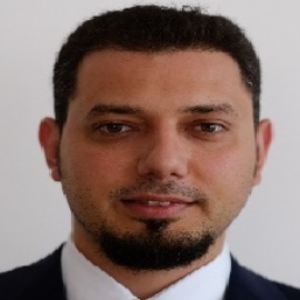Title : Combinatorial development of proton conducting oxides for hydrogen separation membranes
Abstract:
Separation membranes allow purification of hydrogen from gas mixtures produced by various methods, such as the reformation of natural gas, coal gasification, or the gasification of municipal waste. Hydrogen separated in this way may be used in fuel cells to generate electricity or may be fed directly to the natural gas grid to temporarily storage. It is likely that the current network of natural gas will soon be transformed into a “gas” grid where hydrogen would be an essential ingredient. All these require the use of efficient separation membranes, which would make the easy availability of hydrogen possible as is currently the case for natural gas. Thus, the separation membranes would have a much wider scope than normally anticipated and therefore there would be a need for separation membranes that are more efficient and in particular of low cost.
The current study concentrates on proton conducting oxides that can operate at temperatures higher than 450 °C and applicable to the steam reformation of natural gas including the water-gas shift reactions. Proton conducting oxides used for this purpose are quite attractive due to their high hydrogen selectivity and superior tolerance to possible toxic gases (e.g. CO, H2S, etc.) that may be present in the gas mixtures.
The current study adopts a membrane design methodology based on combinatorial material science. This approach makes use of a magnetron sputtering system whereby a material library of thin-film membranes is produced in a single experiment. The library is then screened by four-probe resistivity and electrochemical impedance measurements so as to identify the compositions that are highly reactive with hydrogen. A map of reactive index prepared in this way is used to determine candidates for hydrogen separation. The membranes are then fabricated in the form of discs and tested for hydrogen permeability. In the current study, BaZr0.80Y0.20O3-SrCe0.95Yb0.05O3 heterostructures are investigated using the above methodology.
This work was supported by TUBITAK (The Scientific and Technological Research Council of Turkey) with project Number 119M065, which the authors gratefully acknowledge.
Audience take-away:
Material development has traditionally followed a Darwinian scheme which involved limited variation at given time and a selection resulting in slow evolution. In the context of material development, this approach requires a careful pre-consideration in altering the material composition and detailed characterization with regard to both the resulting structure and the properties. Combinatorial approach is an alternative method whereby a large number of samples each with a different composition are produced in a single experiment yielding the so-called material library. These are then screened in a fast manner using a suitable method identifying the compositional field with the required properties. If necessary, the process may be repeated for the second time by re-examining the selected field to pinpoint the exact composition(s).




